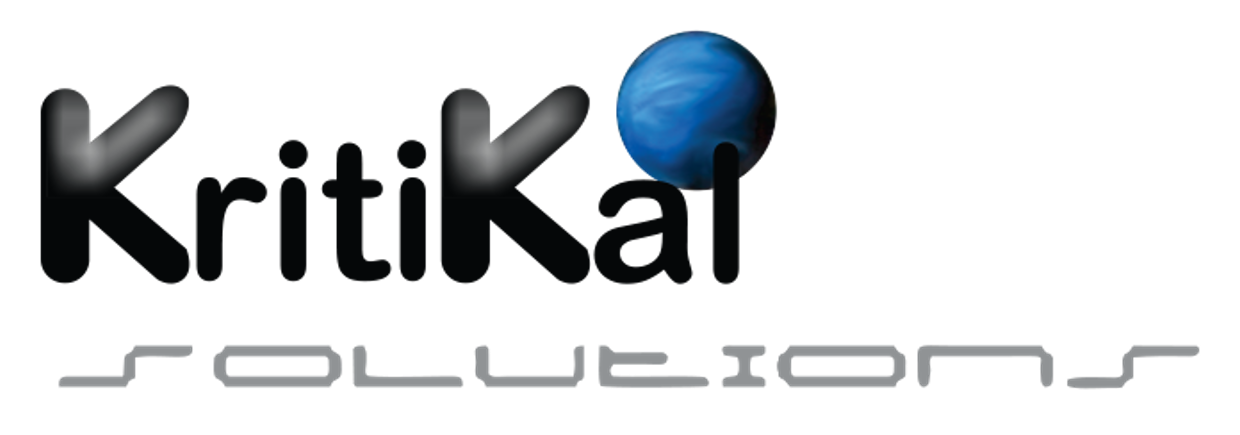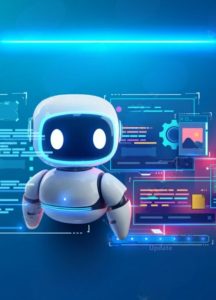A Brief on AI in Food Industry
The food industry faces many challenges, such as inefficient inventory management, escalating food-related waste, rising complexities of the supply chain, tighter profit margins, inaccurate demand forecasting, handling perishable goods, shifting consumer preferences, inability to optimize delivery schedules, maximizing farm yield precisely, and newer food safety norms. Artificial Intelligence (AI) and other IT solutions for manufacturing can assist this sector in achieving such goals by making timely predictions on related disruptions, agricultural equipment and vehicle maintenance, and improving production planning while reducing costs at a maximum. AI basically refers to systems capable of performing tasks such as continuous feedback-based learning, decision-making, risk assessment, traceability, pattern recognition, and real-time monitoring and alert generation that usually require human intelligence.
AI development services develop systems that are powered by advanced computational algorithms and technologies such as Computer Vision (CV), Natural Language Processing (NLP), generative AI services, Machine Learning (ML), Internet of Things (IoT), Human-in-the-Loop (HITL) feedback, and agentic AI solutions in modern times. It is streamlining logistics and transportation in the food supply chain market, optimizing compliant formulation through rapid prototyping, enhancing quality control, personalizing consumer experience, and maintaining sustainable practices. Thus, driving an undeniable and unmeasurable impact alongside competitive advantage in smart agriculture, consumer engagement, food production, and the logistics and distribution chain of products from farm to fork.
The global market for AI in food and beverage industry is growing in a rapid trajectorial manner, where the overall value is anticipated to climb from US $8.45 billion as of 2023 to approximately US $84.75 billion by 2030, maintaining a robust CAGR of 39.1% over the forecast period. Let us dive through the ways AI and its use cases are emerging as emerging levers, influencing, reshaping, and redefining the food industry and the ways we grow, produce, process, distribute, and consume food at an unprecedented pace.

Source: Grand View Research
Growing market size of AI in food and beverage industry during the 2017 to 2030 forecast period
Applications of AI in Food Industry
Given below are some of the AI applications in real life, being applied in the food value chain, driving innovation in the food industry right from optimizing food production processes to ensuring food safety and delivery.
Quality Control
Big data analytics driven by AI systems and supervised learning techniques assist in quality control and assurance right from the post-harvest stage. It can detect spoilage, contaminants, bacteria on produce, fungal growth, and predict market trends ahead of time to uphold quality as the yield is further processed and moved to the retail sector.
AI-enabled cameras and CV systems perform production and assembly line inspections to detect packaging and grading errors, contamination, and defects in real-time. This helps in flagging anomalies and operational errors by employees in time through human action recognition, stronger regulatory compliance with automated compliance reports, enhanced customer trust, accountability, transparency, and brand reputation across channels, consistent and error-free production, and reduction in wastage, recall costs, and manual labor dependency.
Environmental Monitoring
IoT-based systems can track surface cleanliness, humidity, and air quality in controlled and chilled environments. These systems are powered by artificial intelligence in food industry to trigger real-time alerts and notifications on the devices of the concerned authorities or floor shop managers and even activate automation sequences in case the conditional parameters exceed or fall below acceptable thresholds.
Precision Agriculture
With the advent of robotics and AI, farming and agriculture have become smarter, efficient, and sustainable with lowered carbon emissions. ML is used by farmers to predict optimal planting time, yields, crop stress, and disease detection before they spread further. Agricultural fields are timely scanned using drones and robots to monitor irrigation, water utilization, soil health, and crops using advanced satellite imagery, sensors, and global positioning systems (GPS).
Labor-intensive tasks such as weeding, harvesting, and planting are being undertaken nowadays by AI-powered automated or auto-steering farming equipment that does not require any manual intervention, fastens such processes efficiently, boosts overall productivity, and cuts down waste, pesticide, and chemical usage. These technologies can also be used to monitor animal health and increase yield in dairy and poultry farms.
Predictive Maintenance
Parameters such as temperature, vibrations, equipment performance, electrical usage, pressure, etc. can be continuously monitored for detecting anomalies and generating predictive alerts using IoT-based sensors developed by IoT development services. Food manufacturers can gain advantages such as scheduled maintenance, local processing runs, optimized equipment utilization, continuous distribution, real-time alerts, efficient cold chain management for temperature-sensitive and perishable products, and avoidance of unexpected breakdowns, anomalies, and failures.
Automated Processing
Robots empowered with CV and artificial intelligence in food industry can streamline factory floor functions such as ensuring intricate cuts for packaging by adjusting blades, sorting fresh produce, inspecting quality, and these can also perform other activities such as smart vending, allergen detection, smart kitchen management, and food delivery optimization. These deduct manual interventions, handle high-volume food processing, maintain hygiene and shelf life, adherence to regulatory standards and stringent safety protocols, and improve throughput.
Product Innovation
As we are aware, any kind of food formulation, recipe design and development, and approvals require months, if not years, of consumer testing and trials. AI can accelerate this cumbersome process by simulating ingredient flavors, blends, and predicting acceptance levels of consumers. These platforms can minimize product development timelines, trial-and-error bottlenecks, lift sales and fuel growth, reduce research and development costs, ensure alignment with taste trends, and quickly deliver innovations.
Demand Forecasting
AI-powered systems for automation in the food industry can accurately predict demand by analyzing weather patterns, historical sales, and market trends. Such insights help in avoiding stock-outs, reducing inventory holding costs, fastening leaner supply chain operations, aligning orders with predictive demands, and cutting markdowns. It also helps reduce food waste, spoilage, and overproduction by amalgamating production process data, inventory management, and demand forecasting. Thus, these systems enhance equipment reliability, drive competitive advantage, operational efficiency, satisfaction with respect to customer experience in retail, and product quality.
Supply Chain Management
AI makes a considerable impact on handling efficient logistics and supply chains by optimizing inventory forecasts, monitoring food quality and hygiene protocols, conducting rigorous stage-wise testing, tracking products, and maintaining food safety regulatory standards. Therefore, ensuring precise business growth, scalability, responsiveness, and efficient streamlining of operations at every stage to cope with growing demands for transparency and evolving food safety protocols.

Various applications of AI in food and beverage industry
Implementing Automation in the Food Industry
Here are some steps for implementing AI in the current food manufacturing practices for bringing its beneficial advancements to the table.
1. Initial Assessment: Includes an ROI-focused assessment of the readiness of operations where AI can be integrated, such as recipe innovation, quality inspection, or demand forecasting, evaluation of ERP, POS, and DMS platforms; and identification of workflows involving a high rate of waste generation, forecasting errors, manual checks, spoilage, and labor bottlenecks.
2. Data Sourcing: AI model deployment requires them to be trained on pre-processed data, such as those related to spoilage, sales, batch records, etc., gathered from across the value chain. The data must be in standard file formats, cleaned, and labeled as per established protocols across SKUs and suppliers, secured in encrypted storage, and centrally ingested using cloud services.
3. Tool Selection: Evaluate and select from a range of enterprise-grade tools, platforms, and vendors for deploying artificial intelligence in food industry with respect to parameters like expertise, scalability, integration prowess, explainability, and compliance support for implementing AI in operations. Parameters to be measured against post-deployment include revenue uplift, reduced carrying costs, reduced weight of waste, labor and processing hours saved, etc.
4. Pilot Testing: Testing strategies on a pilot level forms the basis for scaling up across SKUs, geographies, and smart manufacturing solutions in units, in terms of accurate measurement of exceptions, model drifts, and thresholds; improvement in decision-making and HITL feedback loops; gains in production cycle time and governance; and reduction in waste, as showcased in audit logs and KPI dashboards.
5. Internal Training: Vendors, shop floor, operations, and production teams need to be liaised with and trained for successful implementation of the solution, which also helps in highlighting its limitations, flagging exceptions, reviewing alerts, interpreting and validating its outcomes and decisions, refining systems, and aligning them with organizational goals.
Adopt AI in Food Industry with KritiKal
Artificial intelligence is driving a paradigm shift in the food manufacturing sector in terms of redefined and increased efficiency, sustainability, and innovation. Predictive analytics powered by AI/ML can optimize waste generation, supply value chains, elevate compliance with food safety regulations, and personalize nutrition. Automation in the food industry enhances crop yield and consumer insights with the help of machine vision, robotics, speed-based data capture, and more technologies. Furthermore, cutting-edge tools such as connected employee platforms and digital twins are revolutionizing retail and food manufacturing operations.
KritiKal Solutions has devised various CV-powered techniques for the food industry, including solutions for label inspection, wine quality checks, food replenishment level alerts, quality assurance, packaging error detection, liquid level recognition in bottles, efficiency of pizza-making process, crate marker recognition, energy optimization in refrigerators, retail loss prevention systems, product recognition on shelves for expiry, inventory stock and supply chain management, and more. We consistently overcome integration challenges such as data silos, algorithmic bias, data privacy concerns, integration with current infrastructure, lack of skilled labor, natural resources, etc. through stakeholder alignment, ROI-focused roadmaps, plug-and-play device integration, real-time triggers, edge computing, interoperable solutions, and robust data pipelines. AI has become imperative for food enterprises for personalizing consumer experiences, forecasting accuracy, and embracing smart and scalable solutions. Please get in touch with us at sales@kritikalsolutions.com to know more about our products and realize your AI-powered food manufacturing and supply chain-related requirements.

Ram Lakhan currently works as a Senior Testing Engineer at KritiKal Solutions. He has expertise in embedded firmware testing, GitHub, C, Electronics hardware testing, validation, and more. With his ability to work efficiently in teams and extensive experience of working in this industry, he has assisted KritiKal in delivering various projects to some major clients.



 Global
Global  United States
United States 


iswap24.com
November 15, 2025Really insightful post — Your article is very clearly written, i enjoyed reading it, can i ask you a question? you can also checkout this newbies in classied. iswap24.com. thank you
Isaiah Langworth
November 19, 2025I do agree with all the ideas you have introduced on your post They are very convincing and will definitely work Still the posts are very short for newbies May just you please prolong them a little from subsequent time Thank you for the post